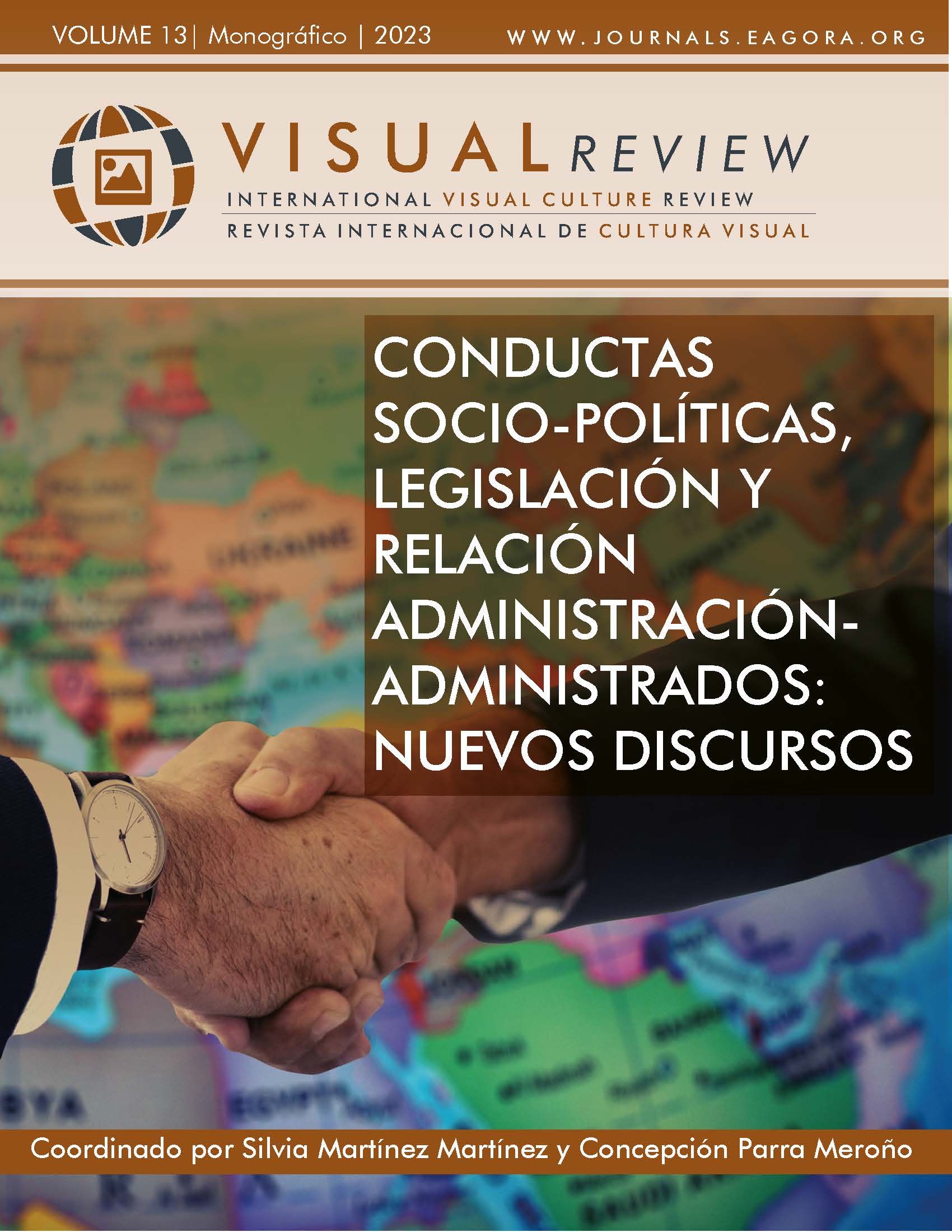Comparative study of the limitations produced to freedom of movement in the European Union during the coronavirus crisis
DOI:
https://doi.org/10.37467/revvisual.v13.4957Keywords:
Covid-19, Pandemic, Freedom of movement, European Union, Borders, Free movement, RestrictionsAbstract
This article seeks to define the exceptionality in the fulfillment of rights and freedoms of European citizens related to the free movement of people. The situation arising from the COVID-19 pandemic made the members of the European Union and the Schengen Area decide to impose movement restriction measures for citizens and residents in them. These ones, understandable at first due to the uncertainty of a new a new disease, endangered the European system of free movement itself, as well as the relevance of the systems of restriction of this right linked to European citizenship.
Downloads
Global Statistics ℹ️
|
477
Views
|
241
Downloads
|
|
718
Total
|
|
References
Anderson, M., Mckee, M. y Mossialos, E. (2020). Covid-19 exposes weaknesses in European response to outbreaks. BMJ. https://dx.doi.org/10.1136/bmj.m1075 DOI: https://doi.org/10.1136/bmj.m1075
Bejan, R. (2020). COVID-19 and Disposable Migrant Workers. https://verfassungsblog.de/covid-19-and-disposable-migrant-workers
Carrera, S. y Chun Luk, N. (2020). In the Name of COVID-19: An Assessment of the Schengen Internal Border Controls and Travel Restrictions in the EU. Policy Department for Citizens’ Rights and Constitutional Affairs, Directorate-General for Internal Policies. www.europarl.europa.eu/RegData/etudes/STUD/2020/659506/IPOL_STU(2020)659506_EN.pdf
Comisión Europea (2020). Communication from the Commission. Guidelines Concerning the Exercise of the Free Movement of Workers During COVID-19 Outbreak. 2020/C 102 I/03. https://eur-lex.europa.eu/legal-content/EN/TXT/?uri=CELEX%3A52020XC0330%2803%29
Exceptius. (27 de enero de 2022). Exceptius: Facultades excepcionales en tiempos de SARS-COV-2 https://exceptius.com/2022/01/27/exceptius-1st-wave-dataset-is-available-online/
Fasani, F. y Mazza, J. (2020). Immigrant Key Workers: Their Contribution to Europe’s COVID-19 Response. IZA Policy Paper, 155. http://ftp.iza.org/pp155.pdf DOI: https://doi.org/10.2139/ssrn.3584941
Goldner Lang, Iris (2021). “Laws of Fear” in the EU: The Precautionary Principle and Public Health Restrictions to Free Movement of Persons in the Time of COVID-19. Cambridge University Press. https://dx.doi.org/10.1017/err.2020.120 DOI: https://doi.org/10.2139/ssrn.3781099
Guild, E. (2020). Who wants to be an EU citizen?. En B. Nijhoff (Eds.). EU Citizenship and Free Movement Rights, 17–35. https://dx.doi.org/10.1163/9789004411784_003 DOI: https://doi.org/10.1163/9789004411784_003
Guild, E., Peers, S. y Tomkin, J. (2019). The EU Citizenship Directive: A Commentary. Oxford University Press. https://dx.doi.org/10.1093/oso/9780198849384.001.0001 DOI: https://doi.org/10.1093/oso/9780198849384.001.0001
Jaya Ramji-Nogales e Iris Goldner Lang (2020) Freedom of movement, migration, and borders. Journal of Human Rights, 19(5), 593-602. https://dx.doi.org/10.1080/14754835.2020.1830045 DOI: https://doi.org/10.1080/14754835.2020.1830045
Koutrakos, P., Shuibhne, N. N. y Syrpis, P. (2016). Exceptions From EU Free Movement Law: Derogation, Justification and Proportionality. Bloomsbury Publishing.
Montaldo, S. (2020). The COVID-19 Emergency and the Reintroduction of Internal Border Controls in the Schengen Area: Never Let a Serious Crisis Go to Waste. En Actas de European Forum. (pp 1-19). www.europeanpapers.eu/en/europeanforum/covid-19-emergency-and-reintroduction-internal-border-controls-schengen-area
Naciones Unidas (1967). Protocol Relating to the Status of Refugees: 606 UNTS 267. ONU. www.refworld.org/docid/3ae6b3ae4.html
Schade, D. (2021). Crisis-proof Schengen and freedom of movement: Lessons from the Covid-19 pandemic. Hertie School, Jacques Delors Centre. https://opus4.kobv.de/opus4-hsog/frontdoor/deliver/index/docId/3929/file/210525_Schengen_Schade_JDI-Paper.pdf
Downloads
Published
How to Cite
Issue
Section
License
Those authors who publish in this journal accept the following terms:
-
Authors retain copyright.
-
Authors transfer to the journal the right of first publication. The journal also owns the publishing rights.
-
All published contents are governed by an Attribution-NoDerivatives 4.0 International License.
Access the informative version and legal text of the license. By virtue of this, third parties are allowed to use what is published as long as they mention the authorship of the work and the first publication in this journal. If you transform the material, you may not distribute the modified work. -
Authors may make other independent and additional contractual arrangements for non-exclusive distribution of the version of the article published in this journal (e.g., inclusion in an institutional repository or publication in a book) as long as they clearly indicate that the work was first published in this journal.
- Authors are allowed and recommended to publish their work on the Internet (for example on institutional and personal websites), following the publication of, and referencing the journal, as this could lead to constructive exchanges and a more extensive and quick circulation of published works (see The Effect of Open Access).













